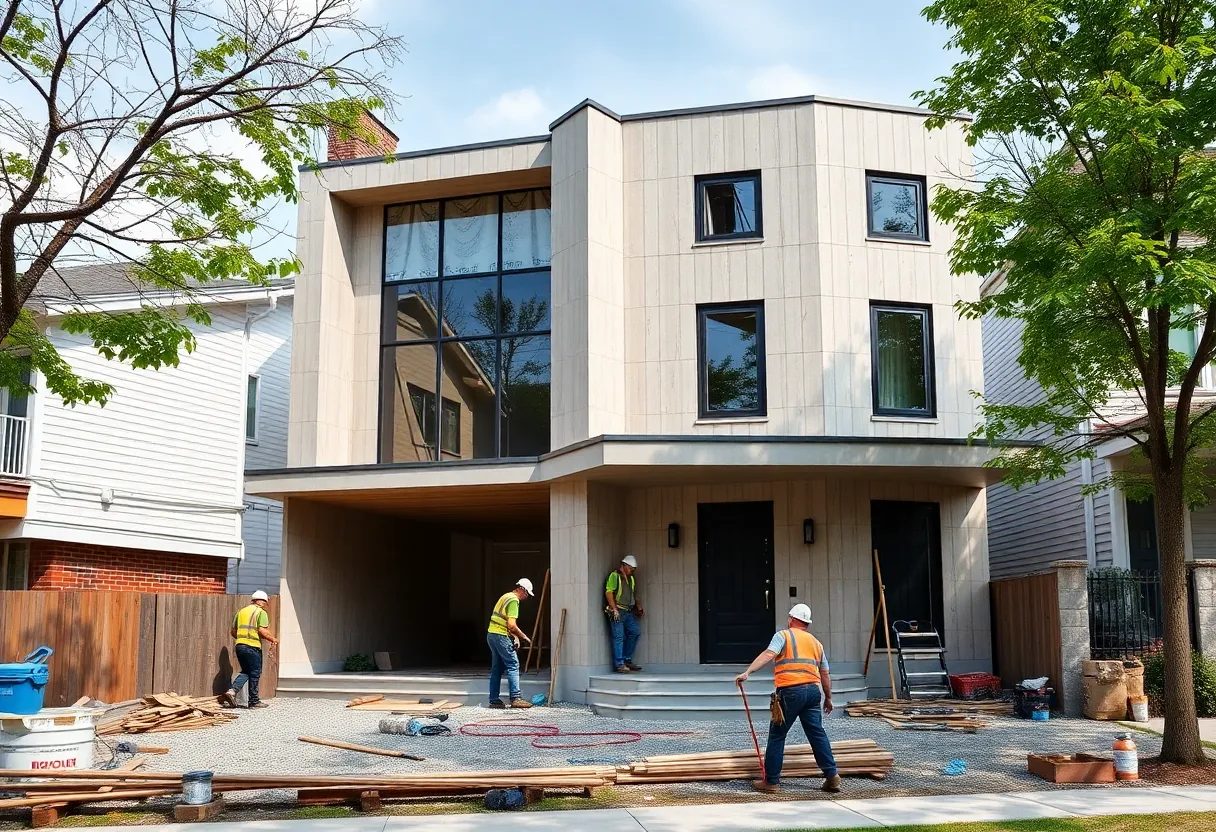How to Navigate the Real Estate Market During Economic Uncertainty: Essential Tips for First-Time Buyers
Introduction
Entering the real estate market as a first-time buyer can be daunting, especially amidst economic uncertainty. Fluctuating interest rates, unpredictable market conditions, and shifting financial landscapes require careful planning and strategic decision-making. This article provides a comprehensive guide to help first-time buyers navigate this complex environment effectively. Emphasizing key principles and practical strategies, it aims to empower buyers to make informed choices and secure favorable outcomes despite economic challenges.
Understanding the Current Market Dynamics
The Nature of Economic Uncertainty
Economic uncertainty stems from varied factors such as inflation, geopolitical tensions, unemployment rates, and monetary policy shifts. These elements influence housing affordability, lending conditions, and market liquidity. Recognizing that market volatility can lead to fluctuating home prices and changing lending criteria is essential for buyers who seek stability and value.
Impact on Property Prices and Availability
During periods of economic instability, property prices may experience slowdowns or declines, creating opportunities for savvy buyers. However, availability of desirable properties could decrease due to cautious seller behavior or restricted listings. Fully understanding these trends helps buyers identify target periods for purchase and manage anticipations accordingly.
Interest Rates and Lending Environment
Interest rates frequently adjust in response to economic shifts. When rates rise sharply, mortgage affordability declines, potentially limiting purchasing power. Conversely, lower rates can stimulate market activity. It’s crucial for first-time buyers to monitor interest rate trends and recognize lender requirements that might become more stringent during uncertain times.
Strategic Planning for First-Time Buyers
Assessing Financial Readiness
Before engaging in the market, thoroughly evaluate your financial position. This includes saving for a substantial down payment, understanding your credit score, and estimating additional costs such as closing fees, property taxes, and maintenance. Maintaining a healthy debt-to-income ratio enhances your loan eligibility and negotiating power.
Securing Financing in a Tightened Lending Market
During economic uncertainty, lenders often tighten credit standards. To maximize your chances of approval:
- Obtain a pre-approval from a reputable lender early in the process.
- Ensure your credit history is clean and updated.
- Consider alternative financing options if traditional loans are unavailable.
Having pre-approved financing provides confidence and leverages during negotiations.
Developing a Clear Budget and Price Range
Establish a realistic budget that accounts for all costs involved in homeownership. During volatile markets, prices may fluctuate, making it vital to stick to a predefined range. Prioritize properties that offer value, potential for appreciation, and fit your financial capacity.
Identifying the Right Property When Markets Fluctuate
Prioritizing Long-term Value and Stability
Focus on properties in stable neighborhoods with strong demand, good infrastructure, and growth potential. These areas typically retain or increase their value despite economic headwinds but require due diligence.
Considering Property Types and Features
Opt for properties that are cost-effective and manageable in economic downturns. Single-family homes with low maintenance costs or condominiums with shared amenities may be safer investments during uncertain times.
Evaluating Market Timing and Trends
Watch local market trends, including sale-to-list price ratios and days on market. During downturns, purchasing at the right moment—such as when prices decline or motivation to sell increases—can save money and expand options.
Making Competitive Offers and Negotiation Strategies
Understanding Market Conditions
In a buyer’s market, more negotiating power exists. Ask for concessions like price reductions, covering closing costs, or home repairs. Be realistic but assertive, backed by comparable sales data.
Assessing Seller Motivation
Identify motivated sellers, such as those needing to relocate quickly or facing financial pressures. They may be more receptive to favorable offers, especially during economic downturns.
Flexibility and Contingencies
Include contingency clauses in your offer, such as financing approval and home inspections. Be flexible regarding closing dates and terms to demonstrate seriousness and increase chances of acceptance.
Monitoring Market Trends and Making Informed Decisions
Utilizing Data and Market Indicators
Both macro and microeconomic data—like interest rates, employment figures, and local sales data—are vital. Watches trends can inform timing and negotiation strategies.
Staying Informed Without Overreacting
While market fluctuations can cause concern, avoid emotional reactions. Focus on fundamental factors like property value fundamentals, neighborhood stability, and personal financial health.
Involving Experienced Professionals
Partner with reliable real estate agents, financial advisors, and legal experts. Their insights can help navigate market complexities and identify opportunities unique to current conditions.
Risk Management and Long-term Planning
Building a Buffer for Economic Downturns
Maintain emergency savings covering at least 3-6 months of expenses. This financial cushion helps manage unexpected costs or income disruptions.
Focusing on Long-term Appreciation
In uncertain markets, buying with a long-term horizon is prudent. Properties in desirable locations tend to appreciate over time, enabling you to ride out short-term fluctuations.
Considering Fixed-Rate Mortgages
A fixed-rate mortgage provides predictability and stability against rising interest rates, offering peace of mind in volatile environments.
Conclusion
Successfully navigating the real estate market during economic uncertainty requires reserved patience, meticulous research, and strategic planning. By assessing your finances accurately, understanding market trends, and employing smart negotiation tactics, first-time buyers can capitalize on opportunities while mitigating risks. Remember, stability is often found in long-term thinking and careful decision-making—essentials for building wealth and achieving homeownership goals despite economic headwinds**.
Author: STAFF HERE WASHINGTON DC
The WASHINGTON DC STAFF WRITER represents the experienced team at HEREWashingtonDC.com, your go-to source for actionable local news and information in Washington, DC, and beyond. Specializing in "news you can use," we cover essential topics like product reviews for personal and business needs, local business directories, politics, real estate trends, neighborhood insights, and regional news affecting the area—with deep expertise drawn from years of dedicated reporting and strong community input, including local press releases and business updates. We deliver top reporting on high-value events such as the National Cherry Blossom Festival, Kennedy Center Honors, and the Washington Auto Show. Our coverage extends to key organizations like the Greater Washington Board of Trade and Destination DC, plus leading businesses in government contracting and technology that power the local economy such as Lockheed Martin and Amazon. As part of the broader HERE network, we provide comprehensive, credible insights into the dynamic landscape of the Washington metropolitan area.




